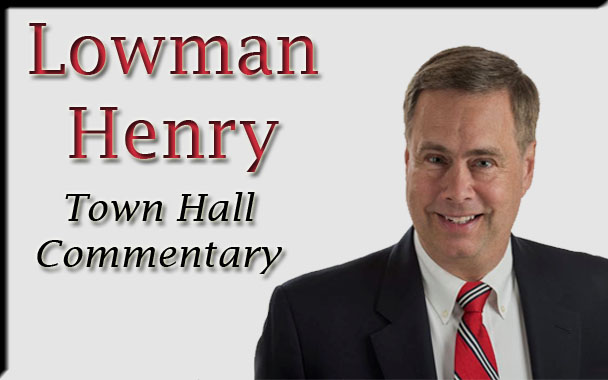California Ignites Tax Revolt II

Given its well-earned reputation as a haven for the tax-and-spend crowd most would look at California as an unlikely place for a tax revolt. But recent increases in gas taxes and vehicle fees have finally pushed the over-burdened citizens of the Golden state to the breaking point.
Pennsylvanians, who in recent years have seen 30-cents per gallon added in taxes on gasoline, might scoff at the California gas tax increase of 12-cents per gallon. But coupled with other fees the hikes are costing the average California family an additional $779.00 per year.
That has stoked outrage which has resulted in over one million voters signing a petition to place a question on the upcoming November ballot to rescind the hikes.
It also cost one lawmaker his job.
In addition to enjoying referendum rights, Californians also have the ability to recall legislators. That is exactly what happened in the recent primary election when Democrat Josh Newman, who cast one of the deciding votes in passing the gas tax hike, was recalled. And it wasn’t even close – he lost by 20%.
Polling shows the proposition that would strike down the gas tax and fee hikes has a better than even chance of passing. At this early stage that is significant in a state where tax hikes are viewed as a positive thing by a substantial portion of the electorate.
California though is no stranger to tax revolts. Back in 1978 a group of voters upset with high property taxes secured enough signatures to get the People’s Initiative to Limit Property Taxation, or Proposition 13, on the ballot. Led by Howard Jarvis, the movement succeeded in cutting and limiting property taxes and sparked a nationwide wave of anti-tax efforts.
Proposition 13, and the anti-tax era it ushered in, is also widely credited with adding fuel to the long-shot presidential campaign of a former movie actor and California Governor Ronald Reagan. Reagan, of course, made tax cuts a centerpiece of his presidency. Those cuts in turn produced one of the longest periods of economic expansion in American history.
Meanwhile, back here in Penn’s Woods, the massive increase in gasoline taxes put into effect under former Governor Tom Corbett continues to have political implications. Since those increases were phased in over three years it took consumers a while to feel the total impact. Eventually, the tax hike on producers was passed along to consumers. Today, Pennsylvania motorists shoulder one of the highest gas tax burdens in the nation.
Tom Corbett is long gone, having been the first incumbent governor in state history to lose a re-election bid. But legislators who voted for the hike on gasoline producers are still feeling the sting. In last month’s primary election the lone sitting state senator to lose re-election was Randy Vulakovich. His opponent, Ross Township Commissioner Jeremy Shaffer, made Vulakovich’s gas tax vote a key issue in the campaign.
Shaffer won in a landslide despite the fact senate Republican leaders poured a ton of money into Vulakovich’s campaign. The impact will be wide-ranging: no longer can leaders promise to insulate reluctant members from voter wrath when they make unpopular votes. The potency of the gas tax issue now proven, it will likely be used against other incumbents in future election cycles.
Unfortunately for those of us in Pennsylvania we lack both the rights to initiative and recall enjoyed by residents of California. Therefore there is no way to roll-back the Corbett-era gas tax and fee hikes except by act of the legislature. That, of course, will never happen. Already officials at the Pennsylvania Department of Transportation are saying they need even more money than the hundreds of millions generated from those increases.
What is also unlikely to happen, in either Pennsylvania or California, is for transportation agencies to reform themselves. In Pennsylvania, public transportation – notably the Southeastern Pennsylvania Transit Authority (SEPTA) – remains a haven for patronage, union excess, and inefficiency.
Motorists who never set foot on a SEPTA bus or train subsidize the cost in the form of taxes and even Pennsylvania Turnpike toll revenue. SEPTA, and the Port Authority Transit (PAT) in Pittsburgh are always in Harrisburg with their hands out for more money. Yet reforms never happen.
Pennsylvania voters should keep a close eye on California and the November initiative to rollback that state’s gas tax hike. Perhaps once again Californians will ignite a tax revolt that will sweep across the fruited plain to Penn’s Woods.
(Lowman S. Henry is Chairman & CEO of the Lincoln Institute and host of the weekly Lincoln Radio Journal. His e-mail address is [email protected].)
Permission to reprint is granted provided author and affiliation are cited.







